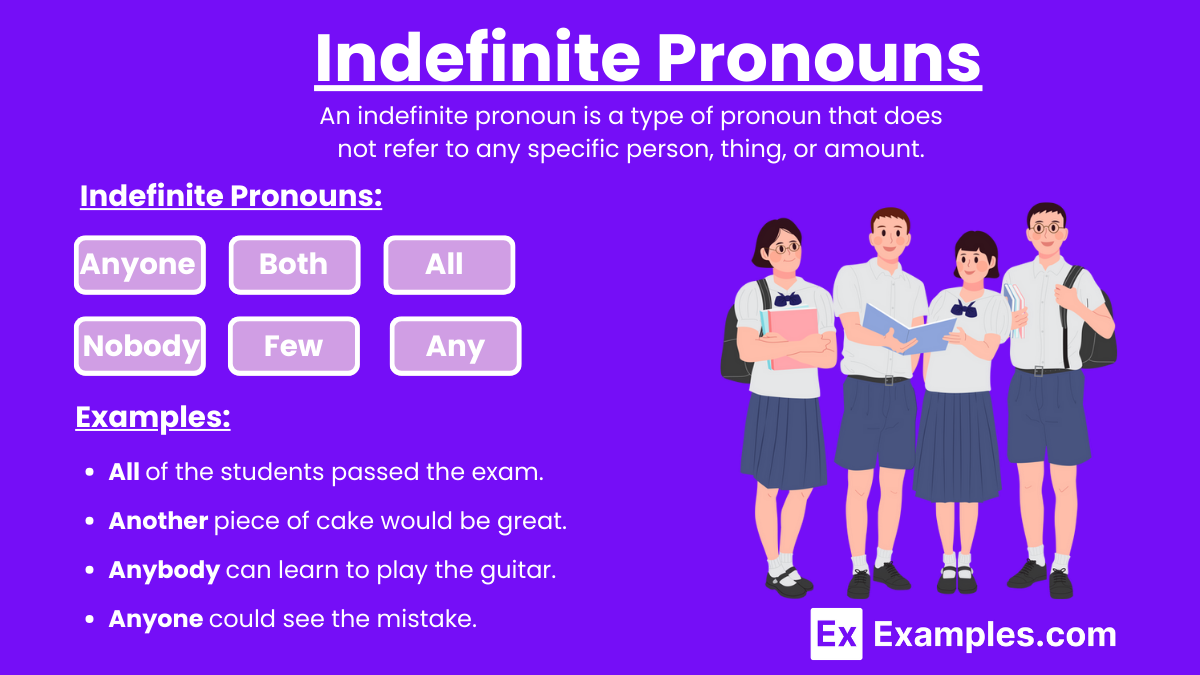

Indefinite pronouns are words that replace nouns without specifying which noun they replace. They refer to non-specific people or things, such as “someone,” “anything,” “everyone,” and “nobody.” These pronouns are essential for sentences where the exact identity of the noun is unknown or irrelevant. Indefinite pronouns can be singular (e.g., “each,” “either”), plural noun (e.g., “both,” “few”), or variable (e.g., “all,” “none”), making them crucial in the parts of speech for flexible communication.
An indefinite pronoun is a type of pronoun that does not refer to any specific person, thing, or amount. Unlike definite pronouns such as “he,” “she,” or “they,” which point to particular individuals or groups, indefinite pronouns are more general. Examples include words like “someone,” “anything,” “everyone,” “nothing,” and “several.” They are used to express a nonspecific idea and can refer to singular or plural subjects
| Indefinite Pronouns | Indefinite Pronouns |
|---|---|
| anybody | many |
| anyone | several |
| anything | all |
| each | any |
| either | most |
| everybody | none |
| everyone | some |
| everything | neither |
| nobody | no one |
| nothing | one |
| somebody | both |
| someone | few |
 Pronouns in a Sentences" width="1200" height="1200" />
Pronouns in a Sentences" width="1200" height="1200" />
Indefinite pronouns refer to nonspecific people, things, or amounts. They can be singular, plural, or both, and are used to make generalizations or to talk about unknown or undefined items. Here are some guidelines and examples for using indefinite pronouns effectively.
Fill in the blanks with the correct indefinite pronoun from the list below: ( anybody, something, few, everyone, none, several, everything, nobody, somebody, each )
Rewrite each sentence with the correct form of the indefinite pronoun in parentheses.
Identify the indefinite pronoun in each sentence.
Yes, pronouns like “all,” “some,” “none,” and “any” can be singular or plural depending on context.
“Each” refers to individual members of a group: “Each student received a book.”
“None” can mean not any or no part: “None of the cookies were eaten.”
Singular indefinite pronouns take singular verbs; plural indefinite pronouns take plural verbs.
Yes, they can show possession: “Everyone’s opinion matters.”
“Anyone” refers to any person: “Anyone can join the club.”
“Someone” refers to an unspecified person, while “anyone” refers to any person without restriction.
“Several” means more than two but not many: “Several students were absent.”
“Anything” refers to any object, event, or matter: “You can choose anything you like.”
“Everything” refers to all things: “Everything is ready for the trip.”